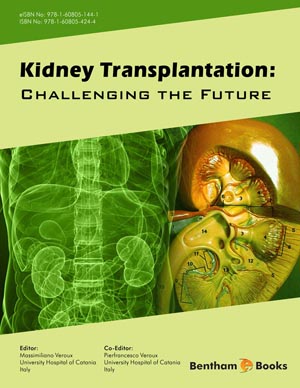Abstract
Renal transplantation is the treatment of choice for children with end-stage renal disease as it results in better survival rates and quality of life compared to dialysis. The pediatric transplant population represents a unique population whereby patients undergo rapid phases of growth and development, not only physically but also mentally and psychologically. This chapter provides an overview of the current trends and issues pertaining to pediatric renal transplantation. These issues include the discrepancy in size between the young recipient and the large adult-sized kidney, variations in the development of the immune response, specific pediatric considerations in immunosuppressive regimens, non-adherence in adolescence, and the greater propensity for infections and viral-driven lymphoproliferative disorders, growth failure and longterm cardiovascular disease. Recurrence of the primary renal disease, especially focal segmental glomerulosclerosis, is a significant concern in pediatric renal transplantation, as this often results in graft loss. Patients with abnormal urinary tracts will need evaluation and often surgical correction prior to transplant. Advances in immunosuppression regimens and surgical techniques in the last two decades have dramatically improved short and medium-term patient and graft survival outcomes in pediatric renal transplantation. Long-term graft survival, however, remains suboptimal, due to calcineurin inhibitor toxicity, cardiovascular disease, infections and non-adherence. Therefore the current challenge in pediatric renal transplantation will be to improve long-term graft survival by minimizing the side effects of immunosuppression while preventing rejections. There are trends towards steroid and/or calcineurin inhibitor-sparing immunosuppressive regimens, with the use of non-depleting or depleting monoclonal and polyclonal antibodies as induction therapy.
Keywords: Immunosuppressive Regimens, Induction Therapy, Monoclonal Antibodies, Polyclonal Antibodies, Growth Failure, Non-Adherence, Tacrolimus, Cyclosporine, Acute Rejection, Living Donor.






















